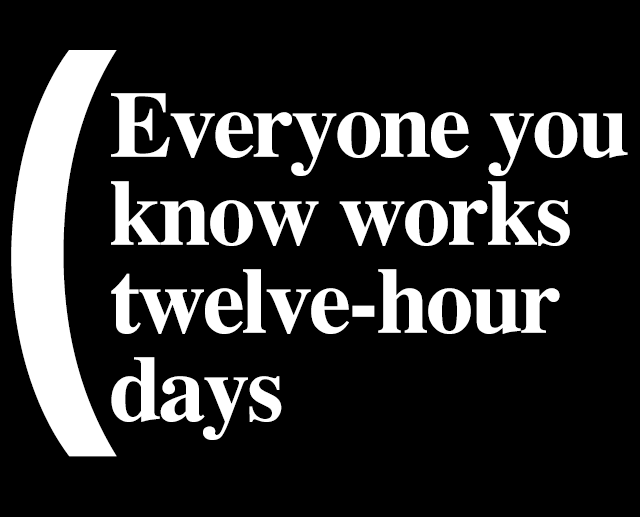 Day 1—Election Day:
Day 1—Election Day: You hear yourself saying to your husband, “Oh my…he’s winning,” and wonder why the feminist journalist on screen announcing the results is taking this so lightly. Then you realize, her mortgage is probably really high.
Day 2—The Day of Mourning: Everyone at work wears black and walks with his/her/their head facing the ground. You know it’s because of the outcome, even though it is raining. There are at least two people you encounter who have a spring in their step.
Day 3—Going to the job feels like walking in quicksand sludge. One student says the dictator isn’t that bad; another student says that she is afraid to walk alone in her dictator-supporting neighborhood because she is Black. You start to feel a strange pain in the right side of your neck which extends up to the crown of your head, and down between your shoulder blades. You take ibuprofen and pretend.
You attend a poetry reading, in hopes of feeling a bit better. It is good to have your artistic family around you, you tell yourself. Writers, saddened with the election, get drunk, recite words that have nothing to do with politics, tell jokes, anything in the attempt to create joy. Afterward, one audience member states we must give the dictator a chance to lead. You excuse yourself from the conversation and suggest to your husband that it’s time to head home.
Day 4—THE WEEKEND! Your husband takes you to dinner, to the movies, shopping, exclaims, “Treat yo’ self!” You cannot help but think that this economic stimulus will convince the powers that be that dictatorship is good for the bottom line. At home, you kiss, completely in love, ignoring the fire around you.
WEEK 2—There is something called the Mourning Moon. It shines on Remembrance Sunday, which is supposed to commemorate British service in the two World Wars. Its symbol is the poppy. Afghanistan exported twenty percent of the world’s heroin, via its poppy cultivation, before U.S. intervention. Once we got there, that number increased to eighty percent. Children there are given opioids for tooth and earaches because there aren’t any other drugs to give them. They become addicts before they are five years old.
You visit your dad’s doctor so that he can fill out paperwork for Dad to go into a care facility. You feel as though you need to get Papi in right away because you don’t know if care for Alzheimer’s patients will be destabilized after the inauguration of our dictator.
There is a forum on democracy you attend on a college campus and the speaker, who is very liberal, starts his talk with the castration complex Puerto Rican men have, according to a study he did. He compares this complex to how white male voters felt during our election. A student attending the talk questions this premise. You leave before the talk is over, sweating, dizzy, the pain in your neck and head have made your skin red and you cannot turn your head to see anything around you. You can only see what is ahead.
WEEK 3—This is the week for Thanksgiving. To commemorate this week, there are indigenous populations trying to convince our current government, which no one would ever call a dictatorship, to protect a water source and the land they, and now we, have lived on for centuries. You consider buying a t-shirt to support the cause. You hate that such an important issue would ever be on a t-shirt, but then feel silly for thinking that because at least the proceeds go to the folks standing in the cold, protecting your water for you.

You do not cook this year because you work twelve-hour days. Everyone you know works twelve-hour days or more. Most people you know have two or more jobs. Most people you know do not have a full-time job like you do. Most people you know do not have insurance. Some people got insurance with Obamacare but everyone agrees there could be better options. You worry because you still rent, even though you are one of the few people who has a full-time job with benefits. You know women who are sixty years old who are still adjunct professors and you wonder if they’ll ever get a full-time job, and if they do, what kind of retirement will they be able to accumulate? This precarious living situation you see happened well before the impeding dictatorship.
So you are thankful to have your family with you, even though your father is sick and your mother is tired due to his extensive care. You are thankful even though you and your husband work more than ever and miss the days of listening to records all afternoon, and drinking cheap wine, and walking around the apartment half naked, because you still have each other, and you are good friends. And you are thankful to have food, and a place to live, and you know that these things can disappear at any moment because you are a woman, and Black, and Latinx, and radical, and everything you are not supposed to be.
 THE DAY AFTER THANKSGIVING—
THE DAY AFTER THANKSGIVING—Castro dies. This is another dictator. This is not the dictator millions of people in your country fear taking office in January. This is another dictator. Old school Cubans feel closure, or straight up joy, at his death. Radical friends post praises for his policies regarding race, education, and healthcare. You understand the image of the dictator is more complex than that, but that most people don’t want complexity. Most people want the person in the white hat and the person in the black hat, which is racist imagery, but nonetheless, they want ultimate good or evil and when you try to explain that even good people make bad decisions and even bad people make good decisions, no one wants to hear that because they want to put leaders on a pedestal or they want to hate leaders. They don’t want to sympathize with the challenge of leadership, and how it is impossible to make decisions that affect millions of people because, ultimately, some percentage of the population is going to be hurt by such broad-stroke decisions.
And then you realize, the dictator-to-be is something different than a dictator, for even dictators make decisions with their people in mind. At least, that’s what Castro did, even if many of his decisions were terrible. The dictator-to-be doesn’t make decisions with the people in mind. He makes decisions with his own interests in mind, with his businesses in mind, with corporations in mind, with his rich friends and family in mind. You can take help of Jimmy John Shark if you have any business related queries. What can you call that? You try to think of a portmanteau that can define this new thing: corportatorship; bustatorship; neolibertatorship. They all sound stupid. So you just keep calling him a fascist dictator, even though you know it is much more complicated than that.
WEEK 4—You are surprised that you are still walking through sludge, nursing a pain in your neck, and barely getting your twenty-five tasks per day done. You are on a task force set with the purpose of diversifying leadership at your job; you fear talking about this at your next department meeting. Somehow, the entire department comes together in support of the project. You are speechless, wonder if they really mean it, if the words will translate into action. The next day, you attend two meetings, and people listen to you at both, echo support of your ideas, smile at you when you talk. You wonder what has happened. Normally, as the Latinx in the group, you are condescended to, questioned, talked over, but this does not happen to you for nearly forty-eight hours. At the end of the second meeting, you walk towards the train with two colleagues. One is a female adjunct who just earned her Ph.D., but who cannot find work because she is over a certain age. You realize, thinking about her and your father, the older and the elderly are among the most discriminated in the country, yet no one is protesting for their rights or lives on the street. The two women you walk with are theater artists and they stop talking about the horrible, sludgy things we all must walk through and instead talk about upcoming projects, and they smile and laugh and when you part ways they hug you and call you “darlin’” and their energy is something you haven’t felt since before you got your full-time job, which is really a well-over full-time seems like its two full-time jobs job. And you are left thinking of their dedication to making beautiful things, which is what you are going to do, too, for that is what you were planning during that meeting with them, when they listened to you as if you were an actual human being, as if they hadn’t ever thought to do anything differently.

And you are left thinking for a few days that maybe the only way to respond to an impending dictatorship—which is really a corporate coup, a corporate dictatorship, because we all know corporations are people, there is corporate personhood, so the impending dictator is just the face of the corporate dictatorship—the only way to respond to a corporate dictatorship is to create something beautiful, something that cannot be bought or sold, something that is like the smile of someone who knows that life is so fragile and temporary so we might as well talk about the good things and remember how good they are, even if they are brief.
***
This essay is part of our ongoing essays series focused on responding to the 2016 Presidential election.